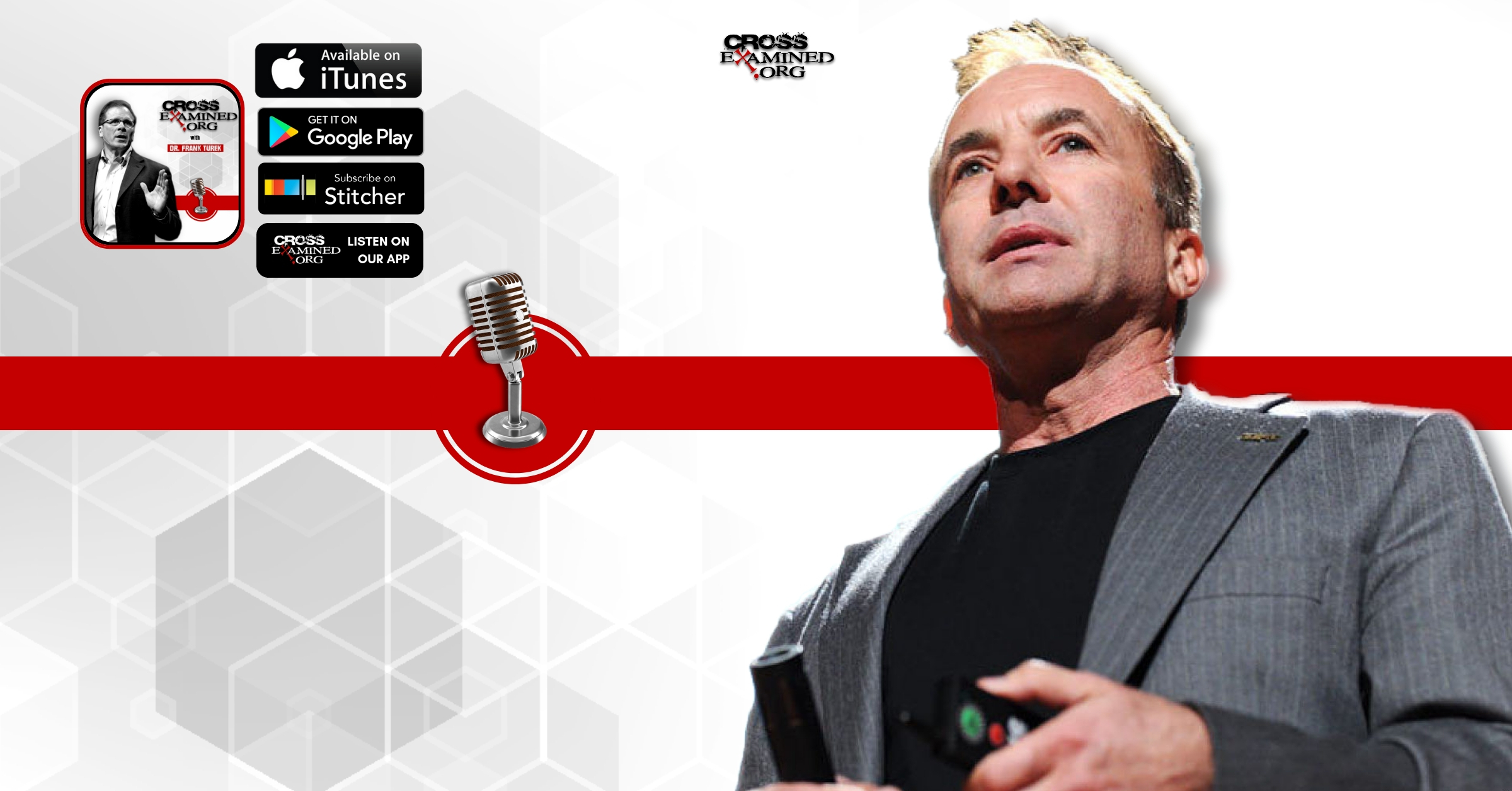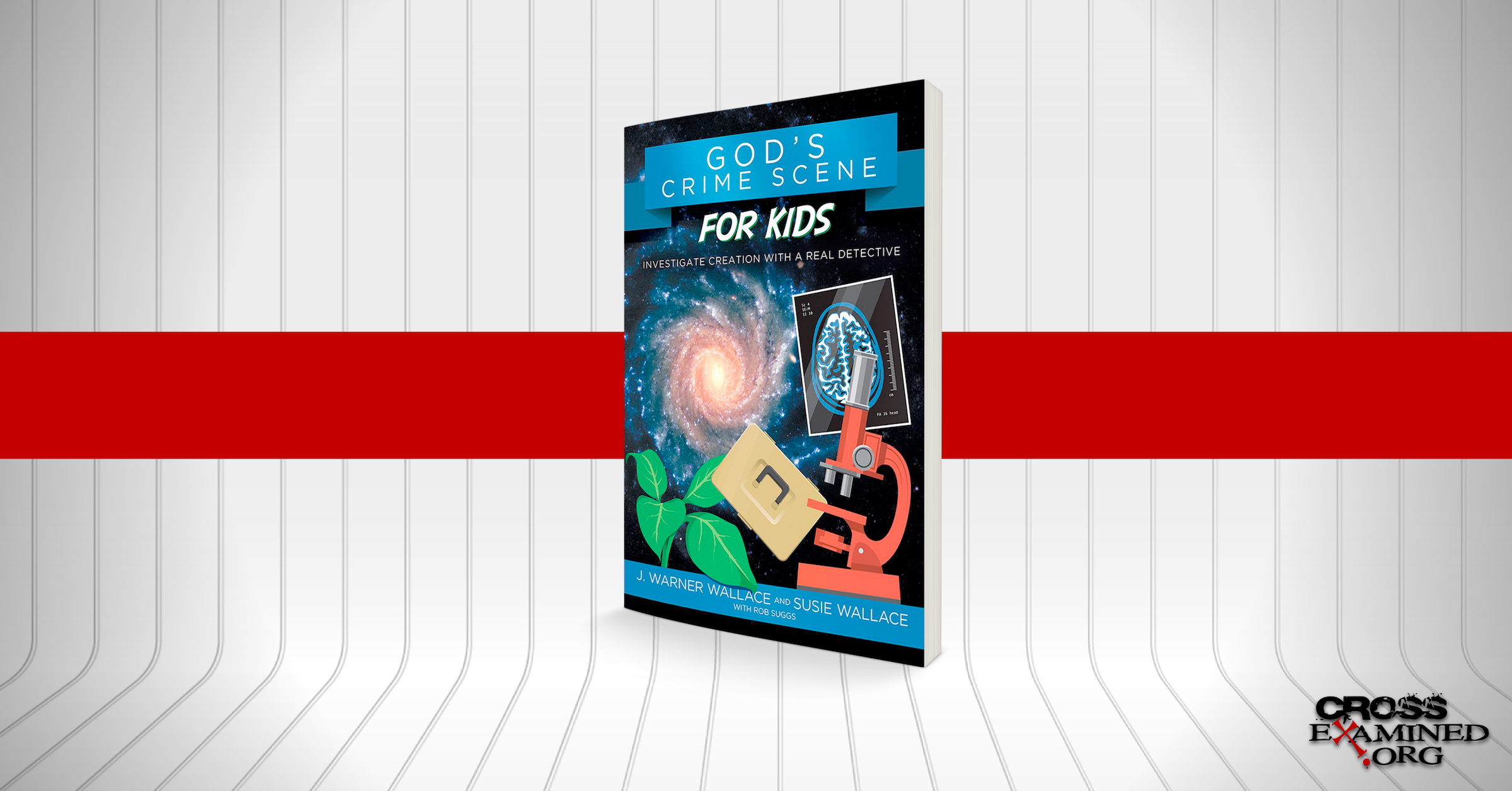Is the Bible Our Highest Authority?
Many Christians believe that it is wrong to offer unbelievers evidence for the truth of Christianity.[1] They argue that the traditional method of apologetics dishonors Scripture by not giving it the respect it is due. The concern is that offering evidence for the truth of Scripture gives evidence more weight than Scripture. The argument might be framed this way:
- If some activity requires us to treat something as a higher authority than Scripture, as Christians, we should not do it.
- Giving evidence for the truth of Scripture requires us to treat evidence as a higher authority than Scripture.
- Therefore, as Christians, we should not give evidence for the truth of Scripture.
Michael Krueger expresses the basic sentiment when he says,
“If the method of argumentation communicates to the unbeliever that he should believe the Bible only because it has received the stamp of approval from science, archaeology, and historical criticism, those disciplines, not the Bible, will be his ultimate authority.”[2]
In this article, I hope to show that the traditional apologist can answer this type of argument in a two-fold fashion. Once we clearly understand what it means to say that Scripture is one’s highest authority, it will become clear that this belief is not in conflict with presenting evidence for the truth of Scripture. In short, traditional, evidence-based, apologetics is harmonious with the affirmation that Scripture is the Christian’s highest authority.
Two Types of Authority
It will be helpful to begin by distinguishing between two types of authority. The Polish philosopher Józef Maria Bocheński made an important distinction between deontic authority and epistemic authority.[3] A deontic authority is roughly an authority which is able to tell you how you should act. Examples would include your boss or a police officer. These are individuals who can, to some extent, tell you what to do.
An epistemic authority is quite different. Epistemic authorities can tell you what you should believe. Examples would include a scholar, a doctor, or some other sort of expert. These are knowledgeable individuals who can be appropriately called “authorities” in their respective fields.
The key distinction between a deontic authority and an epistemic authority lies in the domains over which they exert their authority. Deontic authorities tell you how to behave. Epistemic authorities tell you what to believe.
Applying the Distinction
Armed with an understanding of these two types of authority, let’s explicate what it means to say that Scripture is our highest authority. It seems quite evident that this typically refers to Scripture as a deontic authority. To say that Scripture is one’s highest authority is, in essence, to say that one ought to obey God rather than men (Acts 5:29). Scripture will dictate a Christian’s behavior even when Scripture conflicts with another authority (e.g the government).
Thus construed, it becomes evident that the original argument is guilty of equivocation. Premise 1 refers to deontic authority while premise 2 refers to epistemic authority. As such, under a deontic understanding of Scripture as one’s highest authority, the conclusion of the argument simply doesn’t follow.
Scripture as an Epistemic Authority
Although on a deontic conception of Scriptural authority, the argument is flawed, there is one complication. Scripture does not merely tell us how to act, but it also tells us what to believe. Thus, while it is true that Scripture is a deontic authority, it also appears to function as an epistemic authority. Should we regard Scripture as our highest epistemic authority as well?
To answer this question, we need a clearer understanding of the role that epistemic authorities play in the formation of justified beliefs. In the first place, we need to observe that beliefs which are held on the basis of epistemic authorities inherently have weaker justification than beliefs held on the basis of evidence. This is because, when information is gained via authority, there is a further link in the chain between the believer and the truth of the belief. When one believes a proposition on the basis of evidence, then his connection to the truth of the belief is much stronger. When one relies on an epistemic authority, they are trusting the authority to accurately relay his own beliefs which (hopefully!) are based on a body of evidence to which the believer does not have direct access. The indirectness of the belief allows more opportunities for mistakes to be made. So whenever a belief is held on the basis of an authority, it necessarily has a lower probability of being true than a belief based directly on evidence. The upshot here is that epistemic authorities are not valuable because of anything intrinsic to that authority. They are valuable because they are a means of connecting us with truth. Epistemic authorities are only useful insofar as they achieve that goal. As Richard Feldmen observes,
“Inferential rules aren’t good ones simply because experts use them. Rather, experts are good guides to good rules simply because they have the best insight into the matter.”[4]
Now, none of that is meant to disparage the importance and value of epistemic authorities. Clearly, we cannot become acquainted with all the relevant evidence for every possible belief. Epistemic authorities, therefore, provide us with a convenient way of gaining knowledge about something without examining it in detail. The cost of that convenience, however, is that one incurs a greater risk that their acquired belief is not true.
To minimize this risk, it is crucial that we have good reasons for regarding an authority as reliable. If there were no way for recognizing an authority as reliable then we would either have to blindly follow anything that claimed to be an authority, make an arbitrary selection about which authorities to believe, or else reject epistemic authorities altogether. As John DePoe notes,
“Authorities play a valuable epistemic role because they are avenues for justified beliefs and knowledge that are inaccessible to us without them, or they make the procurement of such epistemic good more convenient. … Importantly, however, for me to embrace [an] authority justifiably, I must have good reasons to trust the source as an authority in the domains where I regard it as an authority.”[5]
So it is not possible, in principle, to have a highest epistemic authority if this is meant to be understood as an authority being one’s primary source of knowledge. A subject must always choose to believe what an authority says. And to make an informed decision about which authorities to believe, one needs access to independent evidence.
Highest Epistemic Authority
As the above discussion makes clear, evidence has primacy when it comes to justification. There is no highest epistemic authority comparable to a highest deontic authority. It is by means of evidence that we adjudicate between various epistemic authorities and determine which one’s are to be trusted. This is not to deny that there can be a highest epistemic authority from among a range of authorities. For example, suppose I have a medical condition which two doctors wish to diagnose. One doctor has only examined my condition superficially while the other has examined me thoroughly. Both doctors are authorities, but the one who has examined me thoroughly is the higher authority, and, as such his diagnosis will be taken more seriously. In this situation, I could be said to have a highest epistemic authority. However, notice that the word “highest” is being used in a comparative and contextual sense. I regard one authority as highest from among other authorities with respect to a specific topic. In the same way, the Christian can make Scripture his highest authority from among other authorities (pastors, theologians, etc.) with respect to the nature, will, character, and revelation of God. Thus, there is a sense in which Scripture can be considered a highest epistemic authority when this is meant to be understood as an authority among others which is given the most epistemic weight.
But since evidence is required to adjudicate between competing authority claims, it retains an epistemic priority over any authority. Notice, however, that this entails that evidence is not itself an authority. Thus, under this conception of evidence and authority, the second premise of the original argument is false. It confuses justification with authority. While authorities can play a justificatory role, not all justification comes in the form of authorities. If it did, we would be without justification for trusting any purported authority as such.
A Final Consideration
It seems to me that Christians who use this sort of argument mean something rather different by “highest authority” than I specified above. They don’t mean that Scripture is merely their highest epistemic authority from among a range of authorities about some particular subject. They appear to mean that Scripture should actually be our primary source of knowledge. To make belief in Scripture conditional upon sufficient evidence does indeed admit that Scripture is not one’s primary source of knowledge.
But I don’t see why this should be a concern for the traditional apologist. Having faith in an authority on the basis of evidence does not compromise that authority’s status nor does it somehow make evidence a “higher authority” in any meaningful sense. It is simply to acknowledge that one needs justification for believing that an authority is authoritative. Perhaps some will find this objectionable. But what is the alternative? To believe on the basis of nothing? This is epistemic irresponsibility. Moreover, it seems impossible. For surely before one can believe the teachings of Scripture, one must become acquainted with them through either hearing or reading Scripture. This shows that Scripture cannot be one’s primary source of knowledge.
If the critic still wishes to maintain that the traditional apologist is making evidence a higher authority than Scripture, then we may simply respond that he has equated “highest authority” with “primary source of knowledge.” This is a definition of “authority” that the traditional apologist is entitled to reject. If the critic still wishes to retain this definition of the word, then it is evident, I think, that he is deliberately defining words in such a way that he can accuse those who dispute his conclusions of lowering the status of Scripture. In this case, he is deliberately muddying the waters. Under the critic’s definition, the traditional apologist need feel no discomfort for not making Scripture his “highest authority.” The critic is now using this term to get the traditional apologist to say something which the traditional apologist never believed.
Summary and Conclusion
In this article, I have briefly outlined an objection to traditional apologetics which states that the traditional method turns evidence into a higher authority than Scripture. We have seen that the traditional apologist may give a two-fold response. First, he may respond by stating that he takes Scripture to be his highest deontic authority, but not necessarily his highest epistemic authority. If the critic replies by pointing out that Scripture is also an epistemic authority, the traditional apologist may reply by saying that epistemic authorities are limited in scope to specific topics. Thus, while he may well regard Scripture as his highest epistemic authority with respect to truths about God, he need not regard it as his highest epistemic authority with respect to the belief that Scripture yields accurate information about God. Moreover, he may argue that evidence does not function as an epistemic authority but rather functions as a means of recognizing an authority as such. Obviously, if evidence is not a type of authority, then it cannot be a higher authority than Scripture.
I conclude, therefore, that once we have clarified what is meant by “the authority of Scripture,” arguments such as that offered in the introduction either equivocate, are insensitive to the nature of epistemic authorities, or else mistake all justification for being a type of authority. In each case, the argument fails to establish its conclusion. Hence, the traditional apologist may confidently present evidence for the truth of Scripture without thereby sacrificing the authority of Scripture.
Notes:
[1] In particular I have presuppositionalists in mind. However, similar arguments can be found among critics of apologetics more generally. Such arguments are, by no means, limited to presuppositionalists.
[2] Michael J. Krueger, “The Sufficiency of Scripture in Apologetics,” TMSJ 12/1 (Spring 2001) Pg. 69-87
[3] J. M. Bocheński, The Logic of Religion, New York: New York University Press, 1965, Pg. 164-167
[4] Richard Feldman, “Authoritarian Epistemology,” in Earl Conee and Richard Feldman, Evidentialism, New York, NY: Oxford University Press, 2004, Pg. 127
[5] John M. DePoe, “A Classical Evidentialist Response to Covenantal Epistemology,” in Debating Christian Religious Epistemology, New York, NY: Bloomsbury, 2020, Pg. 167-168
Recommended resources related to the topic:
Cold-Case Christianity: A Homicide Detective Investigates the Claims of the Gospels by J. Warner Wallace (Book)
The New Testament: Too Embarrassing to Be False by Frank Turek (MP3) and (DVD)
Why We Know the New Testament Writers Told the Truth by Frank Turek (mp4 Download)
The Top Ten Reasons We Know the NT Writers Told the Truth mp3 by Frank Turek
Counter Culture Christian: Is the Bible True? by Frank Turek (Mp3), (Mp4), and (DVD)
__________________________________________________________________________________________________________________________________________________
David Pallmann is a student at Trinity College of the Bible and Theological Seminary. He is also a member of the Society of Evangelical Arminians and directs the YouTube Apologetics ministry Faith Because of Reason.
Original Blog Source: https://cutt.ly/XvdBeMB











